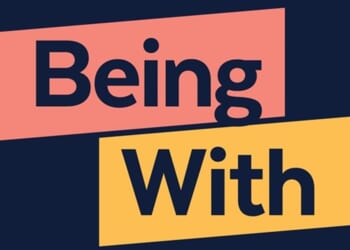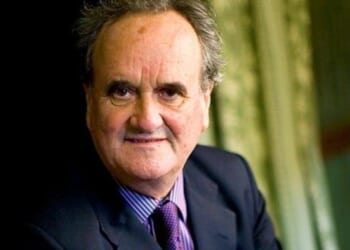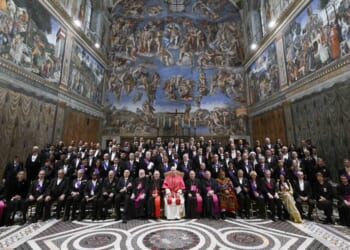
This week, I am not responding to a question but expressing my personal views on the implications of the rise of democratic socialism in America.
Robin Hood is a legend in English folklore based on the illegal and daring exploits of a good-hearted crusader for the common man, or peasants. His heroic character is considered to symbolize resistance to abusive authority and heavy taxation.
Over the years, books and movies based on this fictional character have romanticized the idea of taking from the rich (always portrayed as greedy, selfish, and corrupt), with altruistic motives, of course, to redistribute to the poor and oppressed victims. Robin Hood was never portrayed as greedy, selfish, or corrupt, only kind, just, benevolent, and generous — the perfect protector and redistributor of wealth to the masses.
It sounds very much like the modern platform of democratic socialism.
In my 2021 book, Seven Gray Swans, I offered a biblical analysis of seven key trends that I labeled as gray swans. In the simplest of terms, a gray swan is an obvious danger that we tend to ignore. My list included, among others, universal basic income, social scoring, biometric IDs, and democratic socialism.
The threat of democratic socialism is no longer an outlier. It has landed with significant favor and force in two of America’s largest cities, Chicago and New York, with another one possibly being Seattle.
New York is home to the Statue of Liberty and a symbol of the American Dream. The words inscribed on the base of our iconic symbol of freedom since 1886 are a welcome to the world’s immigrants: “Give me your tired, your poor, your huddled masses yearning to breathe free.”
Ironically, in New York City, it is a significant number of those huddled masses, immigrants who are new to the United States of America, who are rejecting the American Dream and uniting with the utopian dream of democratic socialism, or Robin Hood economics, as I call it.
Economic models based on a fable
Mayor Mamdani, a democratic socialist and former New York State Assembly member, centered his 2025 campaign on making New York City more affordable for working families, emphasizing housing, childcare, transit, wages, and progressive taxation. His platform drew massive voter turnout, particularly among young people and first-time voters, by promising bold economic reforms, all pointing to his adoption of Robin Hood economics:
- Rent Freeze for Stabilized Apartments.
- Universal Free Childcare.
- Fast and Free City Buses.
- $30 Minimum Wage.
- Progressive Tax Increases.
These promises form the core of Mamdani’s “affordability agenda,” which he vows to deliver starting January 1, 2026, through alliances with state lawmakers and a compassionate City Hall.
According to experts, “It’s a recipe for economic disaster.” Read why economists loathe his housing policy, just one of his proposed reforms.
Chicago Mayor Brandon Johnson also proposes economic reform rooted in Robin Hood economics that captures revenue from large corporations and high earners to address structural deficits. This approach draws from his background as a former Chicago Teachers Union organizer and Cook County commissioner, prioritizing “people over profits” and countering federal cuts. His flagship framework is Build Better Together.
Johnson’s policies aim to balance fiscal responsibility with social equity, avoiding broad property tax hikes but proposing progressive taxes focused on affordable housing, mental health, public safety, youth services, and environmental justice. He believes he can generate new revenue with a “head tax” of $21/employee/month on firms with 100+ employees and by increasing taxes on Big Tech/large corporations and the “ultra-rich” in order to avoid increasing personal property taxes and to reduce motor vehicle taxes.
What is wrong with Robin Hood economics?
No matter what names, labels, or crafty marketing slogans are given to this approach, it is an economic philosophy that is guaranteed to increase the power and size of government as well as taxes on job creators and businesses, which will drive job providers (entrepreneurs, investors, and large corporations) out of business or out of state.
Democratic socialism is based on a fable that increases human suffering while claiming to be morally superior and virtuous. Those who are frustrated with being locked out of the opportunities they dreamed of are most likely to fall for these poorly devised solutions proven to be catastrophic in places like Venezuela, Cuba, and North Korea.
Robin Hood economics is driven by the sinful forces of envy, greed, and coveting. The Bible warns us in the Tenth Commandment not to covet what other people have. It is a dangerous attitude based on envy and class warfare.
Reread Scripture’s description of Jezebel’s seizing of Naboth’s vineyard for her husband, Ahab. The belief that government can take from others and redistribute to whomever they choose will lead to the murderous ways of Ahab and Jezebel. Democratic socialism is dangerous and creates policies that can bring about economic collapse.
Desperate, hurting people need care and support to get back on their feet. The role of the Church is to love our neighbors who are suffering and show them a better way to flourish. None of us will benefit if the government continues to become more and more like Robin Hood.
Here are some good articles for more information:
Do you want more tools and tips on financial stewardship? Are you interested in receiving encouraging ministry updates from around the world? Sign up to receive the Crown Newsletter emails by using the form on the homepage at Crown.org.
Chuck Bentley is CEO of Crown Financial Ministries, a global Christian ministry, founded by the late Larry Burkett. He is the host of a daily radio broadcast, My MoneyLife, featured on more than 1,000 Christian Music and Talk stations in the U.S., and author of his most recent book, Economic Evidence for God?. Be sure to follow Crown on Facebook.

















